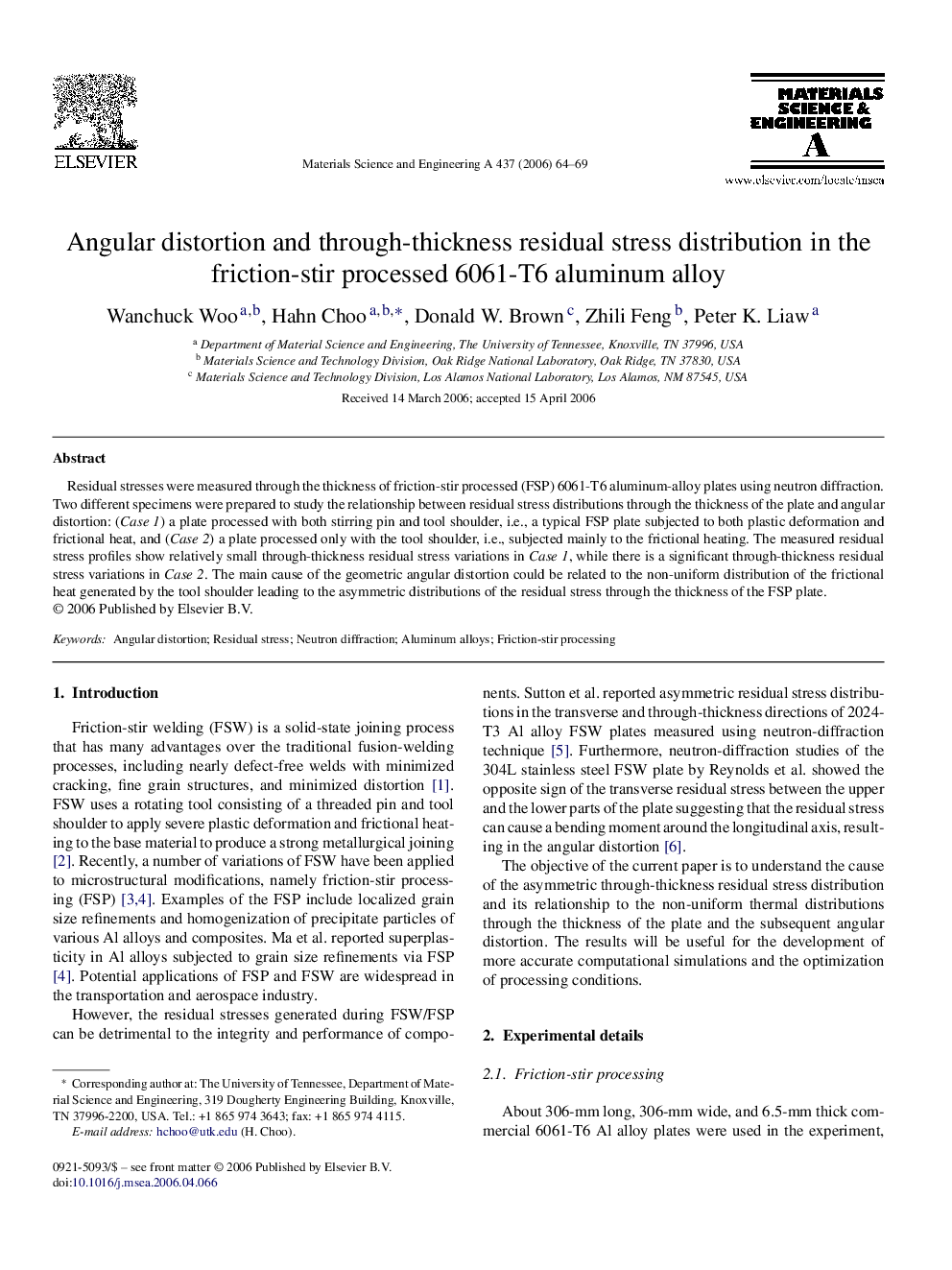| Article ID | Journal | Published Year | Pages | File Type |
|---|---|---|---|---|
| 1584819 | Materials Science and Engineering: A | 2006 | 6 Pages |
Residual stresses were measured through the thickness of friction-stir processed (FSP) 6061-T6 aluminum-alloy plates using neutron diffraction. Two different specimens were prepared to study the relationship between residual stress distributions through the thickness of the plate and angular distortion: (Case 1) a plate processed with both stirring pin and tool shoulder, i.e., a typical FSP plate subjected to both plastic deformation and frictional heat, and (Case 2) a plate processed only with the tool shoulder, i.e., subjected mainly to the frictional heating. The measured residual stress profiles show relatively small through-thickness residual stress variations in Case 1, while there is a significant through-thickness residual stress variations in Case 2. The main cause of the geometric angular distortion could be related to the non-uniform distribution of the frictional heat generated by the tool shoulder leading to the asymmetric distributions of the residual stress through the thickness of the FSP plate.
